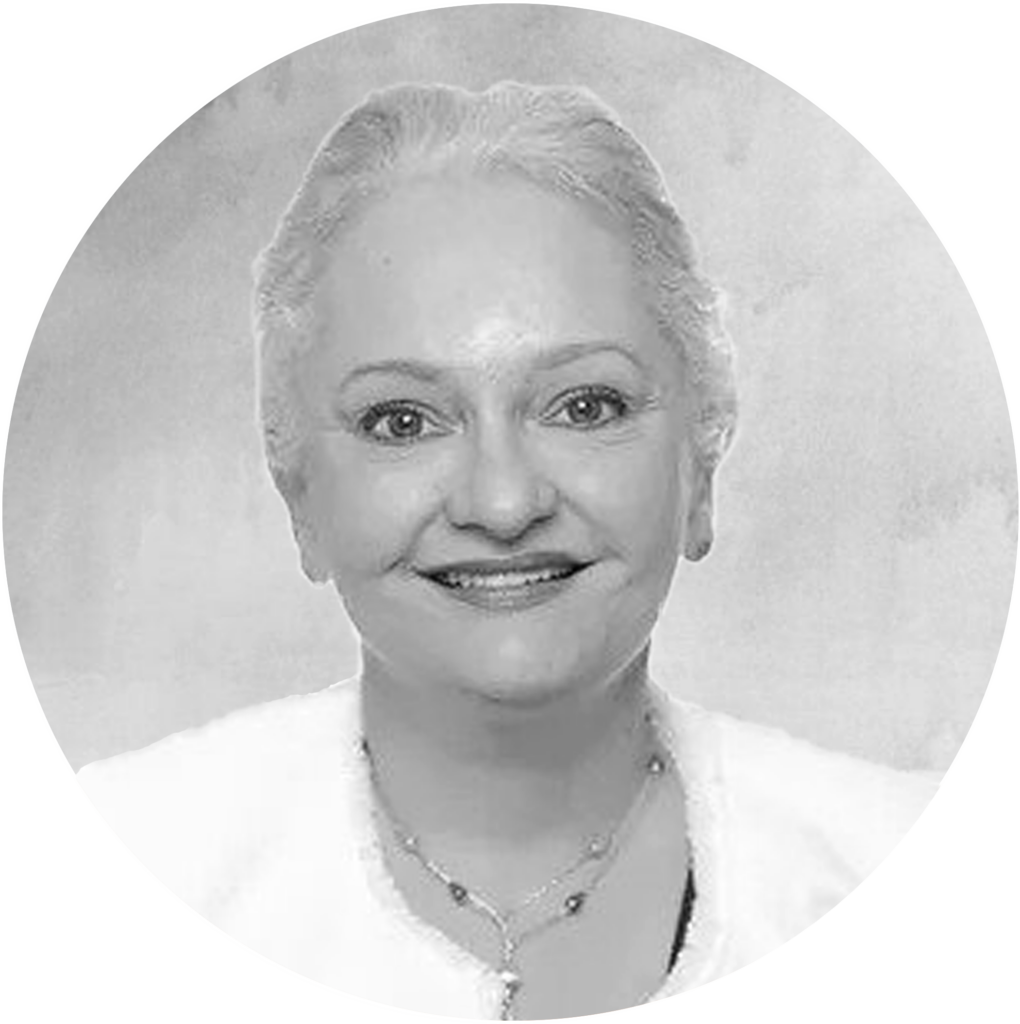APIE Therapeutics is built by a passionate team driven by our mission to improve patient health outcomes
Together, we share a mission to provide therapeutic solutions that extend patients’ lives. Our team is highly experienced and well-positioned to deliver first-in-class therapies. We have partnered with top academic researchers, practicing medical professionals and institutions to accomplish our mission.
© 2020 APIE Therapeutics. All rights reserved

Ashwin Datt joined APIE as CEO and member of the Board of Directors in 2023. Throughout his distinguished career, Mr. Datt has built a reputation for fostering innovation and making data-driven decisions while maintaining an emphasis on mentorship and personal development.
Prior to joining APIE, Mr. Datt was CEO of Carousel Therapeutics, a start-up developing engineered T-cells for oncology applications. Previously, he held positions of increasing responsibility at Gyroscope Therapeutics, including chief people officer, EVP of corporate development, and advisor to the CEO. Earlier in his career, Mr. Datt developed and honed his understanding of people and patient-centric cultures through leadership positions at innovative companies, including Sana Biotechnology, Juno Therapeutics, GRAIL, Inc, Genentech, and Amgen. Mr. Datt’s diverse roles have helped him accumulate a wealth of knowledge in corporate strategy, commercial operations, and pipeline and portfolio planning across various therapeutic areas.

Dr. Esther Alegria co-founded APIE in 2020 and currently serves as the company’s chief innovation officer. In this role, she is responsible for maintaining and leveraging a network of expert research collaborators who work with APIE to advance the company’s pipeline of regenerative medicine candidates. Prior to joining APIE, she was a senior executive biopharmaceutical advisor at Catalyst Excel & Advance where she lent her 28 years of experience in R&D through to commercialization to establish and start up pharmaceutical & biopharmaceutical companies.
Earlier in her career, she was the senior vice president of global manufacturing at Biogen, where she was responsible for the company’s successful manufacturing operations in Denmark, Massachusetts, and North Carolina. Dr. Alegria had previously held positions in the R&D Wyeth Organization (now Pfizer), where she earned the company award for analytical technology in the development and launch of Prevnar.
Esther holds a Ph.D. in chemistry from the University of Hawaii and an executive business management certification from Harvard Business School.

Juan Torres, Ph.D. joins APIE-Therapeutics to manage the development and regulatory path to advance novel Apelin Receptor (APJ) agonists pipeline from pre-clinical into Clinical Trials (worldwide). Dr. Juan Torres is President of Ingenuitas, a non-profit organization researching sustainable health solutions for the developing world and promoting STEM education. Prior, Dr. Torres was at Biogen for 17 years where he was Chief Quality Officer. In this role, Dr. Torres led the company’s Global Quality organization of more than 500 employees and was responsible for quality systems at all Biogen sites. His responsibilities, among others, included Corporate Compliance, Quality Supply Chain management, Quality Operations, Quality Control, IT Quality, Training, and Global Standards. His oversight of the Quality function included both clinical and commercial production. Previously, he held leadership positions at Centocor, Bayer Corporation, Organon Teknika, and Akzo Chemicals.
Dr. Torres previously served as a member of the Advisory Board of the NC State Poole College of Management and as a member of the Board of Directors of the Raleigh Chamber of Commerce. He currently serves as board member in the Kenan Institute for Engineering, Technology and Science, as a Fellow in the Biopharmaceutical Manufacturing Training and Education (BTEC) center at NC State and is a Board Trustee for the Wake Tech Community College. Dr. Torres is native of Seville, Spain but grew up in Puerto Rico.

Dr. Willette recently served as interim chief science officer at Complexa Therapeutics and ImmunoMet Therapeutics. Previously, he had a 30-year career at GlaxoSmithKline (GSK), most recently as vice president and head of their heart failure and renal discovery performance unit where he was responsible for pre-clinical discovery and clinical proof of concept. During his tenure at GSK, he led the discovery and development of candidates the cardiopulmonary, cerebrovascular and renal space, including TRPV4 blockers and p38 inhibitors that are currently in late-stage development at GSK. Dr. Willette was involved in the negotiation of a 2015 partnership with Idera Pharmaceuticals to collaborate on the development of antisense therapeutics against renal disease targets.
He also served as an industry mentor at the Perelman School of Medicine’s Institute of Translational Medicine at the University of Pennsylvania. He was a founding member of the Perelman School of Medicine’s Transformative Research in Diabetic Nephropathy (TRIDENT) initiative, which created a consortium of industry and academic experts from industry, medicine and academia with the goal of improving the lives of people affected by diabetic kidney disease.
Dr. Willette has authored more than 150 original peer-reviewed research papers and is a recipient of the American Heart Association’s Robert Seikert Award for outstanding stroke research and the George Koelle Award for contributions in Pharmacology. He earned his doctoral degree from the department of pharmacology at Rutgers University, School of Medicine and Dentistry in NJ, where he studied the central control of cardiopulmonary function. He conducted postdoctoral training at the Veterans Administration in NJ, Rutgers University and the Weill Medical College at Cornell University.

Tim Wright is a healthcare industry veteran with more than 30 years of experience in the pharmaceutical, biotech and medical devices industries. During his career, Tim has been instrumental in building, transforming and strategically positioning organizations, driving them for growth and profitability across many diverse and highly competitive markets.
Mr. Wright is the founding partner at Signal Hill Advisors and serves as chairman of the board at Isosceles Pharmaceuticals, a specialty pharmaceutical company developing analgesics to treat acute pain.
He previously held executive roles at Covidien (now Medtronic), Teva Pharmaceuticals, DuPont Merck, Elan Bio-Pharmaceuticals, M2Gen Corp. and Curaxis Pharmaceuticals Corporation.
Mr. Wright earned his bachelor of science from The Ohio State University.

James Greenwood is currently a senior policy advisor at DLA Piper, a cutting edge legal and commercial insights group. Previously, he served for 18 years as president and CEO of the Biotechnology Innovation Organization (BIO), where he built bipartisan support for the drug industry. He was a driving force behind the establishment of the biosimilars industry, which creates more affordable biologic medicines following patent expiry, and led industry negotiations to help pass the 21st Century Cures Act.
Before joining BIO, he was a member of the U.S. House of Representatives for Pennsylvania’s Eighth District from 1993 through 2004, during which time he served as chairman of the Energy and Commerce Committee Subcommittee on Oversight and Investigation. Earlier, he served as a member of the Pennsylvania House of Representatives and subsequently the Pennsylvania Senate. Throughout his political career, Jim specialized in health, environmental, and children’s issues.
He graduated from Dickinson College in 1973 with a Bachelor of Arts in social work.

Dr. Peter Johnson joins APIE Therapeutics as a member of the Board of Directors. He practiced reconstructive surgery for ten years at the University of Pittsburgh where he founded and was the first president of the Pittsburgh Tissue Engineering Initiative.
He is currently co-founder and principal of MedSurgPI, providing clinical and commercialization expertise to biopharma and life sciences companies. He is actively involved and serving as CEO of Scintellix, LLC, Beacon Biotherapeutics, and Cell X Technologies. He serves as chief medical officer of Microcures, Inc and Praetego, Inc.
Dr. Johnson is an adjunct professor of biomedical engineering at the University of North Carolina at Chapel Hill, NCSU, Duke University, and regenerative medicine at Wake Forest University School of Medicine. Dr. Peter Johnson holds an M.D. from SUNY Upstate Medical University.

Maureen O’Connor joins APIE Therapeutics as the chairwomen of the Board of Directors. She is a senior healthcare executive passionate about driving change in our health care system to improve lives. She is currently the president & Founder at Moxie Health Care Advisory and most recently, Maureen served as president of Whiterabbit.ai, a Silicon-Valley based company with a mission to eradicate late-stage breast cancer in five years through the use of artificial intelligence.
Before joining Whiterabbit.ai, Maureen spent 17 years as an executive with Blue Cross Blue Shield of North Carolina, serving as executive vice president of diversified businesses and president of Mosaic Health Solutions, the corporate venture arm of the company.
Maureen received a law degree from Suffolk University Law School and a bachelor’s degree in English from College of the Holy Cross. She also is active on many professional and community boards including the Oliver Wyman Healthcare Innovation Leaders Alliance, the United Way of the Greater Triangle, and Family House at UNC Hospitals. She was named by Triangle Business Journal as one of 12 “People to Watch” in 2014. Diversity Journal designated Maureen as one of the nation’s “100 Women to Watch in 2009” and she was recognized in 2008 as one of 10 “Women Extraordinaire” in the Triangle by Business Leader magazine.

Dr. Vinnay Tannan joins APIE Therapeutics as a member of the Board of Directors. He currently leads the RTI International commercialization group, a corporate strategic initiative that extends the impact of RTI’s technologies by intentionally moving them to the marketplace where Dr. Tannan has played an instrumental role in the effort to commercialize the apelin portfolio.
Prior to joining RTI, Dr. Tannan was director of licensing at Wake Forest Baptist Health, overseeing a broad portfolio of technology innovations and licensing initiatives across the medical center. He has over a decade of technology innovation and commercialization experience, a deep knowledge of intellectual property as a U.S. patent agent, and a keen interest in entrepreneurship, having co-founded a health IT company and raised venture capital funding in Research Triangle Park (RTP).
Dr. Tannan serves on the board of directors for the Council for Entrepreneurial Development, is chair of the Licensing Executives Society RTP Chapter, and an active investor with the Carolina Angel Network. Dr. Tannan holds an M.S. and Ph.D. in biomedical engineering from the joint program at UNC-Chapel Hill and N.C. State University, and a B.S. degree in computer engineering from UNC-Chapel Hill.

Dr. Kevin Flaherty currently holds several positions within the University of Michigan Medical School, including director of the university’s Interstitial Lung Disease Program, vice-chair of the Medical School Institutional Review Board for Human Subjects Research, associate program director of the Internal Medicine Residency Program, and co-director of the university’s Scientific Discovery Pathway. In addition, he serves as the steering committee chair for the Pulmonary Fibrosis Foundation’s Care Center Network and Patient Registry.
Dr. Flaherty’s clinical and research interests center around the diagnosis, monitoring, and care of patients with interstitial lung diseases. He is an active participant on grants and clinical trials related to the study and treatment of patients with idiopathic interstitial pneumonias, particularly idiopathic pulmonary fibrosis. Dr. Flaherty holds an MD from Indiana University School of Medicine and a Master of Science in biostatistics and clinical study design from the University of Michigan School of Public Health.

Dr. Jonathan Kropski is currently an associate professor of medicine and cell and developmental biology in the Vanderbilt University Medical Center in Nashville, TN.
Dr. Kropski is a medical specialist on critical care medicine, internal medicine, and pulmonary disease with over 12 years of experience. His research interests include the genetic basis of interstitial lung disease, rare/familial lung diseases, and molecular mechanisms of lung injury, repair, and fibrosis. His laboratory utilizes bioinformatic approaches as well as cell and transgenic animal models to investigate the molecular mechanisms through which genetic variants affect lung epithelial injury and repair mechanisms.
Dr. Kropski holds an MD from Vanderbilt University School of Medicine and completed his residency training in Internal Medicine and Pulmonary/Critical Care fellowship at Vanderbilt University.

Dr. Fernando Martinez is currently the chief of the Division of Pulmonary and Critical Care Medicine at Weill Cornell Medicine in New York City. His expertise covers interstitial lung disease, COPD (chronic obstructive pulmonary disease), interstitial pulmonary fibrosis, pulmonary fibrosis, and respiratory infections.
Prior to becoming chief of the Division of Pulmonary and Critical Care Medicine at Weill Cornell Medicine, he was professor of internal medicine and associate chief for clinical research in the Division of Pulmonary and Critical Care Medicine at the University of Michigan Health System, as well as medical director of its pulmonary diagnostic services and co-medical director of the lung transplantation program.
Dr. Fernando Martinez’s research interest includes COPD, interstitial lung disease, lung transplantation, and lung volume reduction. He is a member of the GOLD Science Committee and sits on a number of editorial boards, including the Journal of COPD and American Journal of Respiratory and Critical Care Medicine (including being the Deputy Editor). Dr. Martinez holds an M.D. from University of Florida School of Medicine.

Jan Rainey, Ph.D. is currently a professor in the Department of Biochemistry and Molecular Biology and director of the Nuclear Magnetic Resonance Research Resource at Dalhousie University. In addition, he serves as assistant professor in the Department of Biochemistry & Molecular Biology at the Beatrice Hunter Cancer Research Institute.
Dr. Rainey is protein specialist with over 20 years of experience. His research looks at characterizing and tailoring protein structure and function in cell membranes and supramolecular assemblies. His lab utilizes NMR and optical spectroscopy alongside single molecule methods. Previously, Jan was a postdoctoral fellow with the Natural Sciences and Engineering Research Council of Canada (NSERC) and the Nova Scotia Health Research Foundation (NSHRF) at the University of Alberta and was awarded the Canadian Institutes of Health Research New Investigator Award. He has a Ph.D. in experimental physical chemistry from the University of Toronto.

Dr. Sudar Rajagopal is currently an assistant professor of medicine at Duke University Medical Center. Dr. Rajagopal’s interests lie in taking care of patients with pulmonary hypertension (PH) and researching the signaling pathways that are altered in the development of PH in rodent models of the disease.
While working at the Duke Center for Pulmonary Vascular Disease, Dr. Rajagopal oversaw a number of patients with PH and their treatment with all available therapies, including continuous intravenous infusion, inhaled therapies, and surgical options. Dr. Rajagopal’s research interests lie in receptor signaling in pulmonary hypertension (PH) with a focus on understanding receptor abnormalities and their downstream targets.
Dr. Rajagopal has board certification in cardiovascular disease and internal medicine from the American Board of Internal Medicine. Dr. Rajagopal received an MD from the University of Chicago Pritzker School of Medicine (Illinois) in 2006 and his PhD in biochemistry and molecular biology from the University of Chicago in 2004.

Dr. Scott Runyon is currently the senior director of the Center for Drug Discovery at the Research Triangle Institute (RTI) International. In addition to managing a group of scientists, Dr. Runyon conducts his own research where he is the principal investigator (PI) of two National Institutes of Health (NIH) R01 grants that are focused on the discovery and development small molecules probes for the neuropeptide S receptor and the apelin receptor. Since joining RTI in 2001, Dr. Runyon has focused on developing novel therapeutics, including small-molecule kappa opioid antagonists, dopamine transporter inhibitors, GABA allosteric modulators (neuroactive steroid scaffold), and non-hormonal male contraceptives (indenopyridine scaffold).
Dr. Runyon has extensive medicinal chemistry and drug development experience. From 2010 to 2012, he served on the Scientific Advisory Board of Sage Therapeutics. He is an inventor on 14 patents and is an author on more than sixty scientific publications as well as 37 papers and presentations. Dr. Runyon holds a PhD in medicinal chemistry from the Medical College of Virginia and a BS in chemistry from Muhlenberg College.

Shelia Violette, the co-founder, chief scientific officer, and president of research of Q32 Bio, is a scientific leader in the field of inflammation, autoimmunity, and fibrosis. In her more than 20 years of industry experience, she has helped advance programs from early research to clinical development, provided strategic and operational leadership to multi-disciplinary teams of scientists, led several research and early clinical programs, and authored more than 90 manuscripts and patents.
Prior to co-founding Q32 Bio, she was an entrepreneur in residence at Atlas Venture and an adjunct associate professor in the Department of Internal Medicine at the Yale School of Medicine. Prior to her role at Atlas, Shelia served in leadership roles in the immunology research group at Biogen, joining Stromedix as vice president of research before returning to Biogen as vice president of research where she spearheaded the tissue injury and fibrosis therapeutic area. She has directed research and led therapeutic programs at several biotechnology companies including Repligen and Ariad. She received her Ph.D. in pharmacology from Yale University.

Dr. Harold R. Collard is the vice chancellor for Clinical Research at the University of California at San Francisco (UCSF) and professor of Medicine and Health Policy.
As vice chancellor, Dr. Collard has helped to position the University as a leader in the NIH’s national consortium of clinical research institutions and developed programs to support the needs of its clinical trialists and biospecimen-based researchers.
Dr. Collard completed his undergraduate education at Harvard College and received his medical degree from Duke University. He completed a fellowship in pulmonary and critical care medicine at the University of Colorado. In 2021, he received a master’s degree in health law and policy from UC Hastings.

Dr. Toby Maher has spent the last 15 years specializing in the management of pulmonary fibrosis and orphan interstitial lung diseases. He is currently a professor of medicine and the director of Interstitial Lung Disease at Keck School of Medicine, University of Southern California, Los Angeles. In addition, he holds the position of professor of Interstitial Lung Disease at Imperial College London and is the British Lung Foundation Professor of Respiratory Medicine.
Dr. Maher previously ran the ILD unit at Royal Brompton Hospital in London, where he saw more than 1,500 new ILD patients each year. His research interests include; biomarker discovery, the lung microbiome and host immune response in the pathogenesis of IPF and clinical trials in interstitial lung disease. He has been involved in more than 50 trials in fibrotic lung diseases from Phase 1b through to Phase 4, including those assessing treatments for IPF, scleroderma, rheumatoid arthritis and inflammatory myositis. He is an associate editor for American Journal of Respiratory and Critical Care Medicine and is on the editorial board of Lancet Respiratory Medicine. He has authored over 270 papers and book chapters on pulmonary fibrosis.

Dr. Sydney Montesi received her medical degree from the University of Rochester School of Medicine and Dentistry. She then completed her residency in internal medicine at Massachusetts General Hospital and her fellowship in pulmonary and critical care medicine at the Harvard Combined Program.
She is currently on staff in the Division of Pulmonary and Critical Care Medicine at Massachusetts General Hospital. She specializes in the care of patients with interstitial lung diseases. She also does translational and clinical research in the area of pulmonary fibrosis.

John Varga, M.D. is currently an academic rheumatologist with a long-standing interest in patient-relevant research of systemic sclerosis (SSc) and fibrosis. Dr. Varga is currently the division chief of rheumatology and principal investigator of the ScleroLab at the University of Michigan Medical School. He is interested in animal models; genetic, immunologic, and bioinformatics strategies to delineate key pathways and clinical associations; and the role of inflammatory mechanisms in fibrosis. The work from the ScleroLab provides the framework for pilot clinical trials in SSc and fibrosis.
Dr. Varga is the author of more than 30 book chapters, 3 books and more than 240 journal articles published in Arthritis and Rheumatism, Journal of Clinical Investigation, New England Journal of Medicine, and the American Journal of Pathology and others. Dr. Varga received the “Fifty Heroes” award in 2001 from the Arthritis Foundation, and, in 2007, was elected as member of the Association of American Physicians. Dr. Varga graduated from New York University (NYU) School of Medicine, completed residency at Rhode Island Hospital and is certified by the American Board of Internal Medicine.

Dr. Maureen Horton is an associate professor of medicine in the Division of Pulmonary and Critical Care Medicine at the Johns Hopkins University School of Medicine. Her lab focuses on four major areas: defining the role of the extracellular matrix in driving lung inflammation, deciphering the role of aberrant cellular processes in lung inflammation and fibrosis, defining the ability of immunotherapy and immunometabolic therapy to reverse lung inflammation and fibrosis and through the translation of her bench research to the bedside, discovering effective therapeutic interventions for cough in patients with Idiopathic Pulmonary Fibrosis (IPF).
Dr. Horton earned her Bachelor of Science from the University of Notre Dame followed by her medical degree from Johns Hopkins University School of Medicine. She completed postdoctoral training in internal Medicine and Pulmonary Critical Care Medicine at John Hopkins Hospital. After completing her training, she joined the faculty in 1999.